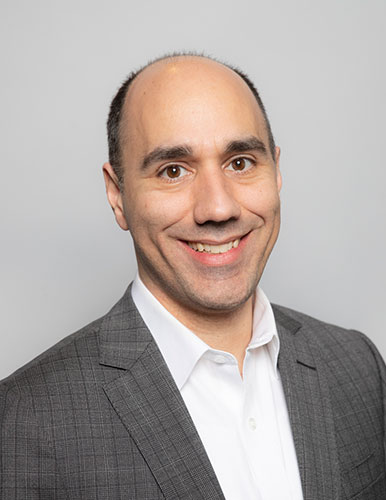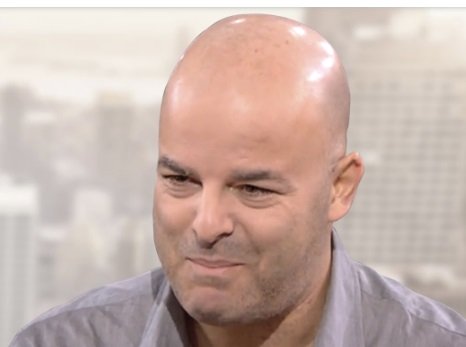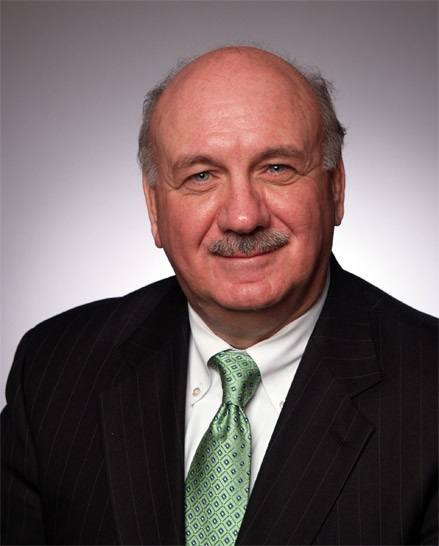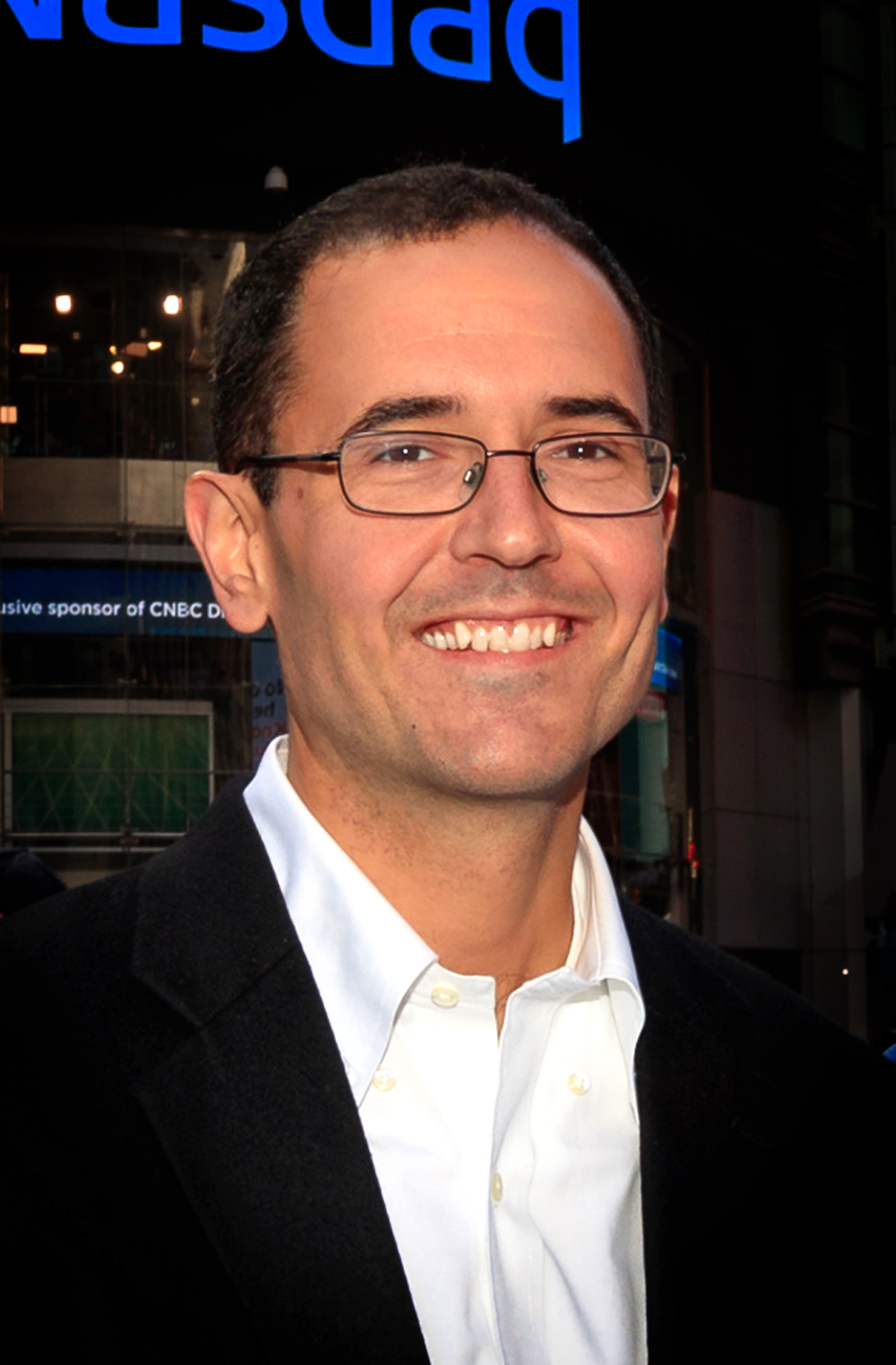
Anthony Paolone is an Executive Director covering REITs and real estate service stocks in the equity research department of J.P. Morgan. Prior to joining the firm, Mr. Paolone was Co-Head of Real Estate Stock Research at CIBC World Markets and was an associate at Donaldson, Lufkin & Jenrette Securities Corp. and Prudential Securities.
His 2,412 word interview, exclusively in the Wall Street Transcript, looks at both the macro and specific economics of real estate assets:
“…If you see S&P 500 earnings continue to be revised down and interest rates remain low, then we think these stocks will actually do fairly well. And so it’s a bit driven by the macro in our view right now at the group level…But two areas I’d also point out that, at the margin, we’ve been a little bit more bullish on than we’ve been historically are the healthcare REITs and the triple net lease REITs.”
Among the REIT universe, Mr. Paolone indentifies the few that stand out for his recommendation:
“Another name that we like a lot on the residential side is American Homes 4 Rent (NYSE:AMH). What we like about that business is we think the single-family rental demand right now is very robust, especially when you think about outsized household formation compared against new construction of housing in the U.S. that’s less than the level of demand.
You’re actually underbuilding on the housing side, and the for-sale housing market really slowed through the course of 2018 and into 2019. We think that puts more folks into rentals longer, and we think that benefits American Homes 4 Rent quite a bit.”
The specific sweet spot includes several stand out stocks:
“AMH, Invitation Homes (NYSE:INVH) and Front Yard Residential (NYSE:RESI) in the public markets, are running with occupancy levels that are in the mid-90s, which is better than I think we all expected them to be at this point. Margins are into the 60s, which is reasonably close to where traditional multifamily margins are. I think in a broad sense the business models have proved to be quite viable, but we’re still in the early days, and there are still things to work out.”
Read the entire 2,412 word interview in the Wall Street Transcript to get the complete list of high performing REITs.

Bhavan Suri, Partner, Co-Group Head of the technology, media and communications sector, joined William Blair & Company, L.L.C. in 2007 and specializes in the IT services and enterprise software industries. Previously, he worked in venture capital and early-stage technology commercialization.
Before joining the financial services industry, he co-founded and managed a Boston-based enterprise software company. Before that, Mr. Suri was a Director at Answerthink, an IT services firm that specialized in systems integration and enterprise software implementation.
Mr. Suri won an award in the Financial Times/StarMine “World’s Top Analysts” listing as the number one stock picker in IT services in 2010. He received a B.S. in physics from Brown University and an MBA from the Kellogg School of Management at Northwestern University.
In this 4,126 word interview, Mr. Suri details his top stock picks, exclusively for the Wall Street Transcript. Two of his favorites are Smartsheet (NYSE:SMAR) and Appian (NASDAQ:APPN):
“…The low-code/no-code space, it’s the idea that a line of businessperson, an individual who is not a technologist, can actually use something that looks and feels like Excel to automate processes.
The software generates code underneath behind the scenes, but the user is unaware of the complexity of the code and can simply automate a process or workflow, which had historically been done manually.
We think a lot of that automation will continue; it’s still very early days for the low-code/no-code market. And that’s what Smartsheet does, for example.
Appian allows you to build very complex applications much, much faster. And when you think about digital transformation and all that’s happening at large organizations today, which is all about adding more technology and automation and workflow optimization, and you also realize we have a dearth of really, really good software developers.
So technologies that allow us to leverage really good software developers or leverage business folks to build software technology should be a very strong secular tailwind over the next five to 10 years.”
Read the entire 4,126 word interview to get the complete list of 2019 stock picks from this award winning equity analyst.

Jason Deleeuw, CFA, is a Vice President and Senior Research Analyst at Piper Jaffray & Co., covering financial and business services companies. He had worked as a research analyst at Piper Jaffray from 2006 to 2011 covering financial services companies. Prior to rejoining Piper Jaffray in 2014, Mr. Deleeuw was a senior analyst on the financial equities long/short team at Pine River Capital from 2011 to 2014.
In this exclusive 2,792 word interview in the Wall Street Transcript, Mr. Deleeuw examines the potential of blockchain technology and whether investors can profit from specific bets on this new category.
“In terms of the negatives, the technology itself, blockchain technology, it’s costly to implement, and it’s questionable whether it’s even better than traditional database technology that we have right now. I think that’s still an open-ended question.
And then, the other thing, you need all the players in the business ecosystem to collaborate with the blockchain. And will those players in an ecosystem, are they truly willing to give up control to whatever the computer, whatever the protocol code or design is?
And if those businesses aren’t willing to give up control, then the question is: Is there really any difference between blockchain technology and traditional database architecture technology? Because the key value on blockchain, again, is that there is no censorship resistance, transactions can’t be blocked by a single entity.”
There are key positive attributes for blockchain based investments:
“…The cryptocurrency enables an exchange of value, so you can do transactions within a blockchain ecosystem. Again, there’s no censorship resistance, those transactions can’t be blocked, and you could exchange things globally without having to do FX conversion in and out of different fiat currencies.
There are some positives there, but the key negatives are the volatility of the cryptocurrency is just extreme. The processing speeds are a lot slower; the transaction processing costs are a lot higher.”
Read the rest of the 2,792 word interview and get the specific investing advice you need from Piper Jaffray analyst Jason Deleeuw.

Brett Huff, CFA, is Managing Director at Stephens Inc. Mr. Huff is a managing director leading the business services team. He joined Stephens Inc. in April 2005 as research associate covering title, insurance broker and financial services technology companies.
Prior to joining Stephens, he was an associate analyst at Southwest Securities focused on the specialty retail industry. He also previously worked at OpenAir, Inc., a private software company in Boston, which was subsequently purchased by NetSuite, Inc., where he held Director of Product Management and Director of Marketing positions.
Prior to that, he worked at Deloitte Consulting as a management consultant. Mr. Huff obtained his B.A. in social studies from Harvard University and received an MBA, focusing on finance and strategy, from the Kellogg School of Management at Northwestern University.
In this exclusive 4,406 word interview, Mr. Huff explains in detail how his financial technology company coverage universe has resulted in his amazing 30% annual return rate for his investors.
“Of these several themes across our coverage list, I think the two that are most interesting are the scale theme and the frictionless theme. We see the scale theme expressed, for example, by Fiserv looking to buy First Data and FIS looking to buy Worldpay.
These are two very large deals happening very near each other and back to back that have, in our view, really reignited the question about M&A scale.
And then, the second most interesting theme is around the frictionless consumer experience. So far, that’s been mostly expressed in the e-commerce payments use case. But we think it is also evolving into bank digital channel use cases, including internet banking.”
One specific stock that has exemplified Mr. Huff’s investment advice is Square (NYSE:SQ):
“Square certainly was high on our list when we last spoke, and the stock ultimately ended up performing very well. I think it’s one of the great stock stories of the last couple of years and played out more or less like we expected.
My thesis back when Square was beginning its journey as a stock was that I thought that the company, while a payments company to start out with, would ultimately be a bit of a platform company. So kind of an IT platform for small business, where Square would develop additional products beyond payments and kind of bolt them on and make it easy for small merchants to use.
And that’s what I think happened through a variety of new products, including some marketing products, some finance products, and some vertical-market-specific products for restaurants and retail.
…I think that is the interesting long-term growth story or one of the interesting long-term growth stories for Square. Although again, it’s largely built into its 12 times forward revenue multiple. So I still like that quality in Square but would wait for a little bit different price before it was more attractive.”
Get all the detail on this and many other fintech stocks in this 4,406 word interview, exclusively in the Wall Street Transcript.

Ronnie Moas is the Founder and Director of Research at Standpoint Research, Inc. He started Standpoint Research in 2004. He began his career on Wall Street as an analyst and market strategist at Herzog Heine Geduld.
Earlier, he worked at Shuki Weiss International Concert Productions where a few of his production credits included the Haifa Seaport Blues Festival, Bob Dylan, Radiohead, Buddy Guy and Suede. Mr. Moas was a sergeant in the Israeli army from 1987 till 1990.
In this wide ranging 3,579 word interview, Mr. Moas puts out a wide ranging explanation of his recommendations and the current and future upside to the cryptocurrency markets.
“They ask me, “What is backing bitcoin?” And my response is, “What is backing the U.S. dollar?” I am 52 years old. The U.S. dollar has lost half of its value since I was in high school.
At least bitcoin acts as a currency should, with upward pressure on the price. And it has a capped supply. There is no printing press printing this out the way you can print the U.S. dollar and devalue it.
I put out my bitcoin recommendation on July 3, 2017. It was at $2,570. It has jumped by more than 50% since then. On a fork-adjusted basis, the return was higher. My target looking out to next year is $28,000.
We are at $3,920 right now. I think there is, I would say, a 40% chance that we see $28,000 next year, which is not a bad return for something with a 40% probability — if you think my odds are accurate.”
Mr. Moas recommends specific cryptocurrency investments:
“You don’t want to try to be a hero and pick a flower from all of the weeds on coinmarketcap.com. There are hundreds of scams and names that are overvalued or worthless, and there is no regulation. You are playing with fire when you try to be a hero and look for things that nobody has discovered yet.
I think you should play it safe. I recommend putting 40% to 60% of your crypto money in bitcoin, and then, you spread out the other 40% to 60% across a dozen or two dozen names that are in the top 50.”
Get all the specific recommendations from Ronnie Moas of Standpoint Research in this 3,579 word interview on the cryptocurrency market, exclusively in the Wall Street Transcript.

David Weinstein joined Dana Investment Advisors in May of 2013 and is currently a Portfolio Manager. He is responsible for security selection and portfolio analysis across Dana’s equity strategies. He received both an MBA and undergraduate degree from the University of Notre Dame and a degree from the University of Pittsburgh School of Law.
in this 4,046 word interview, exclusively in the Wall Street Transcript, Mr. Weinstein explains how his firm does well for investors by offering a highly selective ESG fund.
“ESG investing utilizes environmental, social and governance criteria to evaluate investment opportunities. Related terms include “socially responsible” or simply “responsible investing” as well as “sustainable investing.” Our main equity ESG strategies launched in 2000, so they have quite a long track record.
Some of the areas we analyze are climate change impacts, disclosure policies, history of fines and regulatory actions, and waste- and water-reduction efforts. These clearly fall under the “E,” or environmental factors.
Some social considerations are workforce diversity, labor and human rights policies, and product and workplace safety issues. Governance includes CEO compensation, board independence and composition, and stakeholder alignment. We believe ESG integration can generate alpha and/or reduce risk.”
The Dana Investment Advisors fund managers have created an investor friendly advocate:
“In July of 2018, just two years after actually completing the EMC deal, Dell decided that they wanted to buy back this tracking stock. And the price they offered for DVMT was approximately $0.60 on the dollar. At that time, across our strategies, we held a fairly large position in VMware, and we had a smaller position in the tracking stock DVMT.
We were very concerned about this offer for several reasons. We felt there was an ethical issue. If you come out and you sell to the public a stock and state your intention is that it is worth one-to-one or 100 cents on the dollar in 2016, and then, two years later, you want to buy this stock back for $0.60, that’s an obvious management-credibility issue.
As owners of VMware, we were also concerned that if this deal went through at the price that Dell offered, it would strengthen Dell’s financial position. They already owned 80% of VMware. Dell could possibly take out the remaining 20% of VMware at a similar discount. So we felt this was a worrisome situation…
We wrote a letter to Dell in July and began talking with some other institutions about working together on this issue, using some of the ESG collaboration resources that we have utilized in the past…
We…had a call scheduled with the lead director of VMware on the very day that Dell decided to raise the bid in early November. Dell raised the bid, and we felt the new valuation was reasonable.
As a result, in our social ESG strategy, VMware was the best-performing stock in the second half of 2018. DVMT was the best-performing stock in our growth strategy. We held to our convictions, and this was meaningful to our investment performance.”
Read the entire 4,046 word interview to get the more examples of ESG investing upside, only in the Wall Street Transcript.

Robert S. Bacarella is Founder and Chairman of Monetta Financial Services, Inc., a registered investment adviser founded in 1984, and he has served as the Portfolio Manager or Co-Manager of the Monetta Fund and the Monetta Core Growth Fund — formerly the Monetta Young Investor Fund — since the funds’ inceptions. Before founding Monetta, Mr. Bacarella spent over 15 years with Borg-Warner Corporation, including in the role of Director-Pension Fund Investments.
In this exclusive 4.009 word interview in the Wall Street Transcript, Mr. Bacarella offers his hard won investment wisdom.
“Trying to time the market is a loser’s game. Even the best of us can’t do it. It’s very difficult to do because you’ve got to be right twice: when to get in and when to get out. And then, once you do get out, you have to decide when to get back in.
And many investors during market corrections panic to get out of the market and never re-enter the market. This approach has proven to have a negative impact on long-term performance because they do not reinvest until the market starts to trend the other way. By that time, they miss a major portion of the rallies as the market recovers…
Listen, I got into this business in 1972 and 1973. Those were two years of torture. And I saw stock values plummet 50%, 60% gradually, torturously down during that period. I thought the end of the world was near.
I remember interest rates when they were 18% and looking at a bond at that time that was going to yield me 18.2%. And I was worried that interest rates would go to 20%. I mean, that’s what happens during these periods of panic.
And what I’ve learned over my years is to stay invested, think long term and take advantage of the opportunities that occur, where you can buy stocks at a discount, especially top-quality, large-cap growth stocks.”
An example from Mr. Bacarella:
“Second one will be Visa (NYSE:V), the credit card company. Again, a brand name company, the largest processor in the credit card business. They have 53% of the market share and have consistently produced 10% year-over-year earnings growth. Good, solid holding.
Their competition is Mastercard (NYSE:MA) at 22% and American Express (NYSE:AXP) at 22%. They are the market leaders.”
Get the other top picks in this exclusive 4,009 word interview, only in the Wall Street Transcript.

Robert Marren is a Portfolio Manager and a Managing Director with Allianz Global Investors, which he joined in 2007. He has portfolio management and research responsibilities for the U.S. Small Cap Growth team. He was previously the Director of Research and a portfolio manager of microcap growth equities for Duncan-Hurst Capital Management.
Before that, Mr. Marren was an assistant manager of corporate finance for Hughes Aircraft Company, focusing on debt financing and mergers and acquisitions. In this exclusive 3,591 word interview with the Wall Street Transcript, Mr. Marren explores the upside for small cap growth investors.
“We are growth investors, and we believe that because of the inefficiencies and information flow that exist in small cap and even more so in microcap, we can get an information edge through fundamental research.
And the primary way we do that is we consider ourselves experts in change. We’re looking at companies that are undergoing some sort of either internal or external change, could be a new management team, a new product launch.”
An example investment, detailed in the interview:
“Another company that we’re invested in is a company called Rosetta Stone (NYSE:RST). And Rosetta Stone, you may remember them as their legacy business, selling the yellow-box software that helps you learn a new language, but they’ve really reinvented themselves, along with this change theme, where they’re moving to a subscription-based model from selling just a box piece of software.
They’re expanding into the K-12 literacy market. They’re still doing the foreign language learning business, but they’ve switched that to a subscription model.
So we have recurring revenues, and they’re really growing fast in the K-12 model, working on or providing programs to schools to help children with English literacy. It’s a new business for them; it’s growing quite rapidly.
We think the market is still perceiving them a little bit based on their old business, but as they convert to a full or nearly full SaaS business — software-as-a-service business — we think we will see multiple expansion at Rosetta Stone.”
Get more of these growth investment gems by reading the entire 3,591 word interview, exclusively in the Wall Street Transcript.

Geoffrey Cook has been Chief Executive Officer of The Meet Group, Inc. (NASDAQ:MEET) since March 11, 2013. Since November 10, 2011, he was Director and Chief Operating Officer of the company, appointed in connection with the merger of Quepasa and myYearbook.
Mr. Cook co-founded myYearbook, where he served as Chief Executive Officer from 2005 until the merger in 2011. During his tenure at myYearbook, Mr. Cook grew myYearbook to profitability and more than $30 million revenue with 100 employees. He previously founded EssayEdge and ResumeEdge while a student at Harvard University in 1997 and sold them to The Thomson Corporation in 2002.
In this exclusive 2,233 word interview with the Wall Street Transcript, CEO Geofftry Cook reveals all of the strategy of this young compay:
“To grow video DAU, we’re working on things like one-on-one chat. What are those users who aren’t in video doing? Today, they’re sending text-based chats to each other; they’re finding new people to chat with.
We’re going to be putting nearby videos in front of them, and if they do find somebody to chat with, we’re going to make it very easy to start a video chat with them. And so we’re really bringing video outside just the one tab it’s in today and expanding it into a key piece of every part of the app.”
One part of the revenue mix that has been a problem is advertising sales:
“We saw in 2018 stabilization of ad revenue decline. We started the year at the 36% year-over-year decline in Q1; we ended the year at more like a 16% year-over-year ad decline. And we see that continuing to moderate in Q1 2019 so far; at least as of the call, we were calling for a 10% year-over-year decline in Q1. So I think a lot of the themes were very positive.”
Get the complete picture of the prospects for Meet Group in this complete 2,233 word interview, only in the Wall Street Transcript.

Jacques Habra is the Chief Strategy Officer of Grown Rogue International Inc. He is an award-winning serial entrepreneur recognized by national and regional media for excellence in entrepreneurship, leadership and innovation. Mr. Habra was the lead investor in FirstClick, SelfEcho and TrackR, which recently won $50 million in Series B funding through the Amazon Alexa Fund.
Mr. Habra led early-stage fundraising for Grown Rogue and initial marketing launch. Today, as Chief Strategy Officer, he focuses on investor relations, capital relationships and marketplace strategy. Mr. Habra graduated with degrees in philosophy and English from the University of Michigan with honors.
In this exclusive 3,604 word interview exclusively in the Wall Street Transcript, Mr. Habra details the strategy for bringing his cannabis products to market.
“We have outdoor flower as well as indoor flower. We actually broke a state record in potency for outdoor flower last December, which is really exciting, because as I said, Oregon is a very competitive state when it comes to agriculture and specifically cannabis cultivation.
To break records, to win awards around any cultivation is a real honor, and that intelligence, that knowledge, that best practice is another aspect that we can take across state lines as we expand.
So we have the flower, which is our number one seller; of course, it’s the number one most purchased cannabis product in the world.”
The Chief Strategy Officer acknowledges the hurdles in this fast growing innovative consumer product sector:
“It’s challenging. There are a lot of rules, and a lot of the rules are being made up on the fly. Even in California, which is the biggest cannabis market in the world, they’re still making the rules up as they go along. They’re still defining standards. They’re still figuring out how to allow this product to be in the marketplace but to do so in a very safe and effective fashion. We’ll see how that goes.”
Get the complete detail on the plans for Grown Rogue, exclusively in this 3,604 word interview in the Wall Street Transcript.